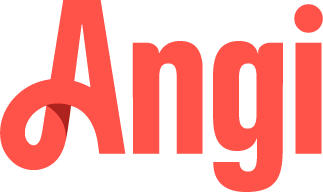- Uncover business-critical issues hidden in support conversations
- Replace disconnected metrics with insights that drive action
- Equip teams across product, ops, and support with data that matters
- Connect the dots between customer experience and company outcomes
Increase in CSAT
30%
Decrease in agent ramp time
120%
Increase in monthly coaching sessions
300%
Everyone knows what Lyft does - their app helps over 23 million people a month call a car to take them anywhere they want to go, on demand.
But there’s a separate arm of Lyft that is not as widely known - Lyft Business. This new business unit was created to help companies provide safe and convenient transportation for their employees or guests within the same great app that everyone knows and loves.
As with many new business initiatives, the team was building the car while driving it. Lyft was figuring it out as they went along - they started with nothing, and built out CX policies, knowledge bases, and quality assurance programs as issues came up (and solutions were needed!).
Challenge: Lyft lacked a source of truth for CX and product knowledge
Not having these policies, programs and knowledge fleshed out provided many challenges for the Lyft Business team. The team relied on institutional knowledge that had been built up amongst senior agents over time in order to train newer agents and to ensure consistent customer service quality.
But because this knowledge had not been codified or formalized, there were lots of inconsistencies when it came to grading interactions and training new agents. On the customer-facing side, the resolutions being offered lacked standardization - one customer might be offered a $4 voucher for an issue, while another could be offered up to twice as much for the same problem.
Senior agents also faced a productivity conundrum. Between helping junior agents with their tickets, and working on their own ticket queue, their productivity and Average Handle Time (AHT) dropped drastically.
Additionally, the lack of a formal QA program meant that agents were not having their performance benchmarked at the same level. For agents, the lack of a structured grading and coaching process led to a lot of uncertainty in their job performance and career progression. At the team level, Lyft was missing consistent CX data that they could rely on to make business decisions.
These issues were compounded by their reliance on NPS as an indicator of performance. On average, they’d receive around 6 completed NPS surveys per month, which simply wasn’t enough data to get a true handle on performance. Lyft needed something better.
The Solution: Implemented a quality assurance program in tandem with a knowledge base!
Lyft needed two formalized sources of truth for the CX program to excel - a trusted knowledge base (KB) to standardize all their operations and training, and a QA program to provide consistent data on agent and team performance. They turned to MaestroQA for help.
MaestroQA helped Lyft identify problem areas to prioritize in building their knowledge base, and provided a way to compare the performance of agents before and after the implementation of the KB.
With a structured QA program now in place, Lyft could also replace inconsistent NPS data with consistent, trusted QA scores.
The Impact: Significantly reduced AHT and improved agent productivity
With a QA-data driven coaching system and a knowledge base in place, senior agents were freed up to focus on the tickets in their queue, leading to reduced AHT and improved agent productivity.
This change also provided another route for agent career progression at Lyft, with some senior agents making the transition to KB management or training. With a clear path to career growth, agents had a bigger goal to strive towards and were set up to succeed long-term, leading to increased agent happiness.
Across the board, the QA program also provided a constant stream of data and insights that contrasted sharply with the average of 6 NPS surveys they previously relied on to chart performance. With this new source of trusted CX data, the team could now identify and correct customer experience and product issues, as well as gaps in their agent training material.
Additionally, with the knowledge base up and running, agents now had a single source of truth that they could turn to for product or policy knowledge that was constantly being updated with insights from QA data. This led to improved first call resolution rates (FCR) because agents could more quickly find the information they needed to respond.
In a fiercely competitive industry, providing an excellent customer experience is essential - and QA helped Lyft do just that.




































